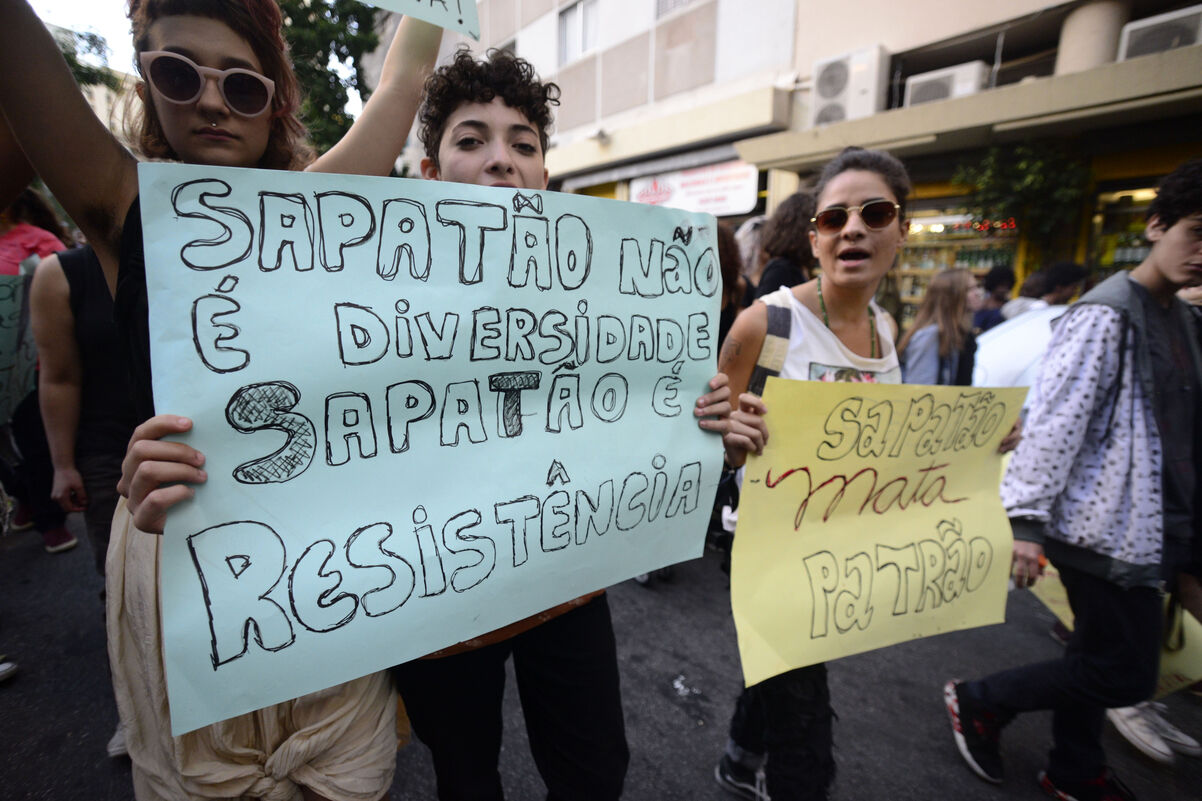Brazil’s LGBTQ rights movement experienced a sharp setback this week when a federal judge overturned the country’s ban on anti-gay conversion therapy.
On Tuesday, Judge Waldemar Cláudio de Carvalho ruled in favor of a psychologist whose practice was terminated in 2016 for offering the discredited “gay cure” therapy. Rozangela Justino, an outspoken evangelical Christian has claimed that she feels “directed by God to help people who are homosexual.”
The decision was immediately met with numerous threats of legal challenges. Brazil’s National Lesbian, Gay, Bisexual, and Transgender Alliance and the Federal Council of Psychology claimed they would seek to overturn the ruling in court.
The Council further condemned the court’s decision to overturn the ban, which has been on the books since 1999. The group claimed that the ruling “opens the dangerous possibility of the use of sexual reversion therapies.” Rogério Giannini, president of the Council, told reporters, “There is no way to cure what is not a disease.”
Conversion therapy has been denounced by a number of leading international psychological groups, as Human Rights Watch notes in a press release.
The World Psychiatric Association (WPA), which represents psychiatric groups from 118 countries, has called any attempt to “change” the sexual orientation of queer people “wholly unethical.” The Pan-American Health Organization, a program of the United Nations, further claimed that the practice lacks “medical justification” and poses “a serious threat to the health and wellbeing of affected people.”
Twelve agencies from the World Health Organization called for a formal ban on conversion therapy in 2015, which has often been likened to “torture.”
Brazil’s break with the current medical understanding of LGBTQ identities follows a right-wing turn in the South American country, which has witnessed a retreat into reactionary conservatism over the past year. Rio Mayor Marcelo Crivella, elected earlier this year, believes that homosexuality represents a “terrible evil.”
As of May, 117 LGBTQ people had been murdered in Brazil, one of the most dangerous countries to be openly queer or transgender. Local advocacy groups estimate that a member of the LGBTQ community is killed once every 25 hours in Brazil.
Public figures in South America’s most populous country, which numbers more than 200 million residents, decried the decision on social media.
“The sick ones are those who believe in this grand absurdity,” said Ivete Sangalo, one of Brazil’s most popular singers, in an Instagram post. Anitta, a fellow pop star, added that the fight over conversion therapy is a waste of time in a nation that has bigger issues to address.
“That’s what happens in my country,” the singer said in an Instagram video that has been viewed more than one million times. “People dying, hungry, the government killing the country with corruption, no education, no hospitals, no opportunities and the authorities are wasting their time to announce that homosexuality is a sickness.”
LGBTQ people in Brazil have been protesting the decision under the #curagay hashtag, which translates to “gay cure” in Portuguese.
Don't forget to share:
Help make sure LGBTQ+ stories are being told...
We can't rely on mainstream media to tell our stories. That's why we don't lock our articles behind a paywall. Will you support our mission with a contribution today?
Cancel anytime · Proudly LGBTQ+ owned and operated
Read More in Impact
The Latest on INTO
Subscribe to get a twice-weekly dose of queer news, updates, and insights from the INTO team.
in Your Inbox













